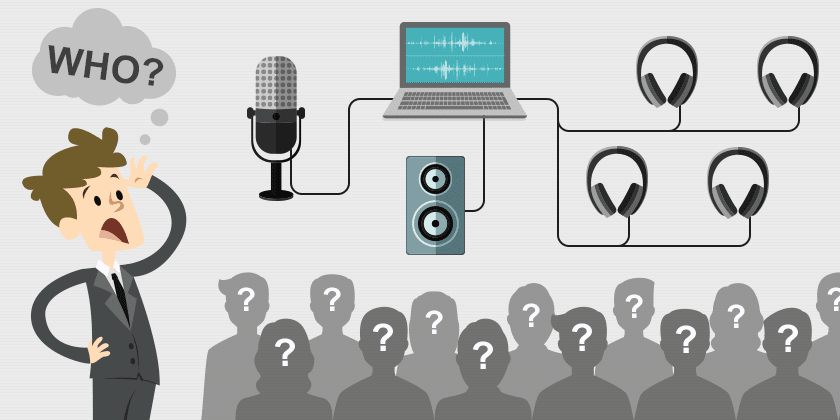
Intro:- How to Start a Podcast: Easy and Proper Guides? “Hey everybody, this is ________from ________ and you’re listening to the _________podcast, the show that [explain the purpose of your show] for people who love________. Today, we’re talking about_________with [guest name], who[explain why your guest is an expert on the topic].
Why is it called a podcast? The word podcast is derived from a combination of two words. iPod and Broadcast. When the term was coined most people were using Apple’s iPod to listen to podcasts. So when Ben Hammersley suggested the word podcasting to describe the new method of delivering content the term stuck.
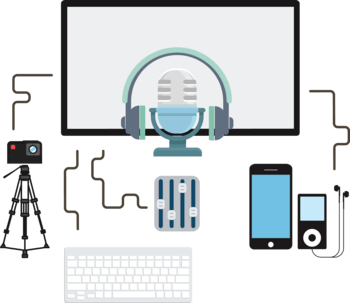
Podcasts are digital audio content distributed over the internet using a podcast hosting service. These services store all podcast episodes in one location and automate the generation of RSS feeds. These feeds list all the podcaster’s episodes.
About:- A podcast is a program made available in digital format for download over the Internet. For example, an episodic series of digital audio or video files that a user can download to a personal device to listen to at a time of their choosing.
The simplest intro template looks like this: “Welcome to [podcast name], where we discuss [podcast topic or tagline]. I’m [host name], and with me is [co-host name]. Today, we’ll be talking about [episode topic] with our special guest, [guest name].
How to Start a Podcast: Easy and Proper Guides? If you are reading this article that means you want to know about how to start a podcast with easy and proper guides, right? But, you don’t have any idea how or where to start. If you are looking for an easy guide to how to start a podcast with easy and proper guides then you are at the right place. Just you have to read this article properly. In this article, I will share the proper guide on how to start a podcast with easy and proper guides. Even if you are a beginner is no worry about it. The steps below are for both Beginners & Experts.
But before beginning to start an article, there are some major points that you should know, like(FAQs)
- How do you start a podcast with no experience?
- What is the basic structure of a podcast?
- What are the 5/x steps to start a podcast?
- How does a beginner start a podcast?
- What are the 3 types of podcasts?
- Do small podcasts make money?
- What are the good podcast topics?
- How do podcasters get paid?
- Are podcasts free or paid?
- How much do Indian podcasters earn?
- How long is a beginner podcast?
- What is the average income of a podcaster?
- What is the number 1 ranked podcast?
- What is a podcast?
Let's Find Out. ...
1. How do you start a podcast with no experience?
To start a podcast with no existing audience, you need to build a listener profile, define the problems you will solve, and ensure your podcast satisfies listeners’ expectations. Before you start, you should also collaborate with authority people in your niche to introduce you to a wider audience.
2. What is the basic structure of a podcast?
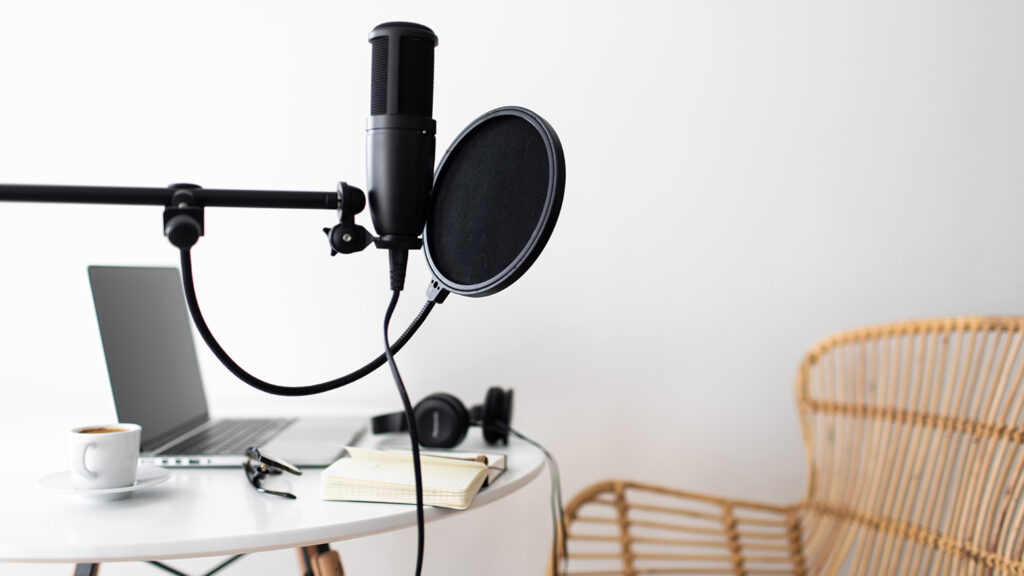
There are three basic podcast segments every episode should have, no matter what. An intro, the main content, and an outro. You could also include special segments, like rapid-fire questions, or fun games that you play with your guests from time to time!!!
3. What are the 5/x steps to start a podcast?
Five-step podcasting plan:
- Structure your show.
- Frame your episodes with an intro and outro.
- Decide on including an interview.
- Practice hosting skills.
- Upload your podcast to the internet.
4. How does a beginner start a podcast?
Table of Contents
- Choose a Podcast Topic You Can Commit To.
- Pick Your Podcast Name.
- Write a Compelling Podcast Description.
- Decide on Your Podcast Format.
- Get Your Podcast Artwork and Music Created.
- Purchase Your Podcast Equipment and Test Your Podcasting Software.
- Choose Your Podcast Hosting Service.
5. What are the 3 types of podcasts?
Nonfiction narrative story-telling. Fictional story-telling. Hybrid.
6. Do small podcasts make money?
While many successful podcasters make thousands or even millions of dollars, smaller-scale creators might only earn a few hundred. Typically, a podcaster with around 10,000 downloads per episode can expect to earn somewhere between $500 to $900.
7. What are the good podcast topics?
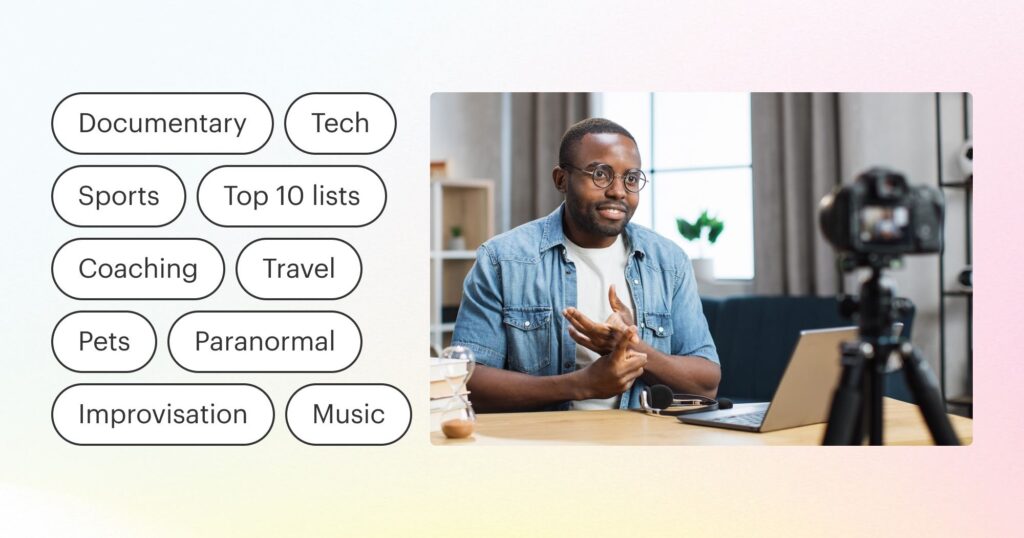
- Q&A
- Paranormal
- True crime
- Personal finance
- Guided meditations
- Kids’ programs
- Time-specific
- Event planning
- Alternative lifestyle
- Advice or quote of the day
- Pets
- Top 10 lists
- Coaching
- A topic you’re unfamiliar with
- Documentary
- How-to and DIY
- Entertainment reviews
- Comedy sketches or stand-up
- Travel
- Local news and culture
- Audio dramas
- Product reviews
- Tech
- Podcasting
- Business and entrepreneurship
- Sports
- Retirement and older aduits
- ASMR
- Under 10 minutes
- Improvisation!
8. How do podcasters get paid?
Sponsorships are the most common way podcasters make money. This is when the podcast promotes the sponsor during the show. You probably hear your favorite shows plug their advertisers a few times in every episode. How much you earn from a sponsor depends on the number of downloads your episodes earn.
9. Are podcasts free or paid?
The word “subscribe” often concerns people who think they have to pay for something. But no, subscribing to a podcast is like subscribing to a website’s newsletter. It’s free, and you get the content delivered to you each time there is a new show.
10. How much do Indian podcasters earn?
We are not talking about cents here, but big money as you might be surprised that an average podcaster earns around: Rs.10-30+ lacs/yr.
11. How long is a beginner podcast?
The ideal length of a podcast: are 22 minutes
Stitcher, an online radio and podcast site, says that the average listener stays connected for 22 minutes. The science of attention spans supports this number, too.
12. What is the average income of a podcaster?
As of Dec 27, 2022, the average annual pay for a Podcast Host in the United States is $72,867 a yr. Just in case you need a simple salary calculator, that works out to be approximately $35.03 an hr. This is the equivalent of $1,401/week or $6,072/month.
13. What is a podcast?
A podcast is an audio-only episodic series that features one or more hosts talking about a particular topic. There are podcasts that discuss just anything you can think of: from current events to true crime to beekeeping.
Let's Explore That. ...
How to start a podcast with an easy and proper guide(s)?
Video Tutorial! ( So, Hottt )
Table of Contents
- Find your niche
- Plan your content
- Name your free podcast
- Create a content calendar
- Choose a podcast hosting provider
- Record your first episode
- Publish and submit your episodes to directories
- Promote your show
Tools we use in this tutorial:
- Google Trends
- SemRush’s Keyword Magic Tool
- Free Podcast Hosting with Acast
- Audacity
- Podcast directoriez: Apple Podcast, Spotify, Google Podcast, Stitcher.
1. Find your niche
There are countless podcasts on the market, covering a vast range of subjects. However, most successful shows tend to focus on a specific niche. By choosing a narrowly-defined topic that appeals to a specific audience, you can help your potential listeners immediately understand what your podcast is all about. This means you’ll have an easier time connecting with your target audience.
Focusing on a niche also makes it easier to market your podcast. Ideally, you’ll be able to find forums, hashtags, groups, and other online communities that cater to your specifications. These are often the perfect places to promote your podcast. Chances are, you already have a rough idea of the subjects that you want to cover. However, if you’re still unsure, it makes sense to consider the topics you’re passionate about. It’s also wise to focus on areas where you have specialist knowledge, first-hand experience, or a unique viewpoint. How to Start a Podcast: Easy and Proper Guides?
Once you have a general idea, it often helps to identify a few popular podcasts that operate within this area. Since these shows have found receptive audiences, you may want to use them as inspiration. While it’s smart to focus on a niche when starting your free podcast, you’ll want to ensure there’s a large enough audience to support your venture. You should also consider opportunities for future growth.
Here, it may help to enter some related keywords and phrases into a tool such as Google Trends. This platform can help you estimate whether there’s enough interest in your chosen subject and whether that interest is growing or declining:
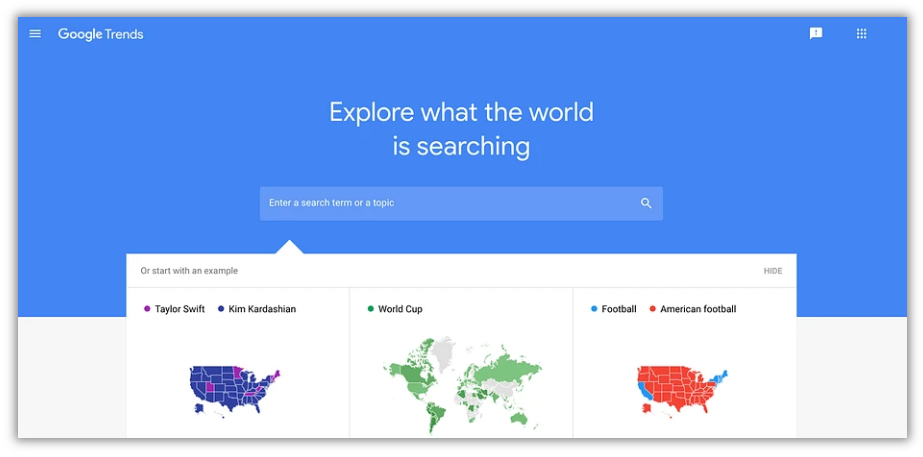
If there’s a limited audience, you may need to broaden your subject matter. You may also want to consider whether you can expand into related niches if your listener numbers reach a plateau.
2. Plan your content
Every successful podcast gives its audience a reason to keep coming back. This means providing listeners with something of value. Before you progress with your podcast, we recommend creating a list of ideas to benefit your target audience. If you want to create engaging content, we recommend talking to your target audience.
This process may involve arranging one-on-one interviews, creating digital surveys, or simply requesting topic suggestions. Listener outreach can also help you learn about your audience’s podcasting preferences, particularly for episode length and format:
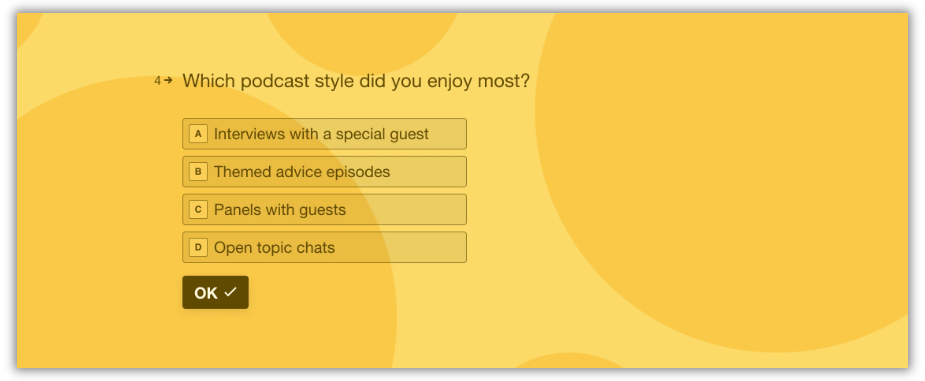
If you’re focusing on a particular niche, you can often find online communities dedicated to this exact area. These spaces may include forums, social media groups, and YouTube communities. These are great places to connect with people who represent your target audience to that you can ask for their input.
It may also help to create a listener persona. This is a fictional character who represents your ideal audience member. You can continuously refer to this person when brainstorming your podcast content. Again, it often helps to research your competitors. For example, if a podcast has achieved huge success by covering your subject matter in a panel format, you may want to consider adopting this format. How to Start a Podcast: Easy and Proper Guides?
I recommend paying particular attention to each episode’s viewing figures. If a specific episode has attracted a spike in traffic, it’s wise to examine what makes this installment so special. You can then attempt to replicate this success with your content.
3. Name your free podcast
Naming a podcast isn’t always straightforward. Sometimes, you’ll know exactly what you want your podcast to be about – and still have no idea what to call it. Many podcasters feel compelled to come up with a clever, catchy title. While this branding can make your podcast more memorable, your content should also appear in relevant search results. Therefore, your podcast title should clearly communicate what your show is about:
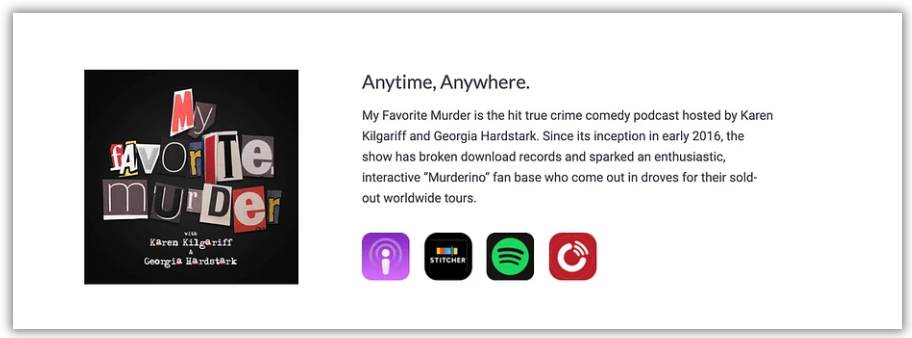
For this reason, it’s wise to identify the keywords your target audience is searching for. You can do this using a tool such as Semrush’s Keyword Magic ( If you can able to buy Semrush’s Keyword Magic that Okey! If you can’t able to buy it, take the help of Google to find the Suggestion keywords) You can then incorporate these words or phrases into your podcast’s title:
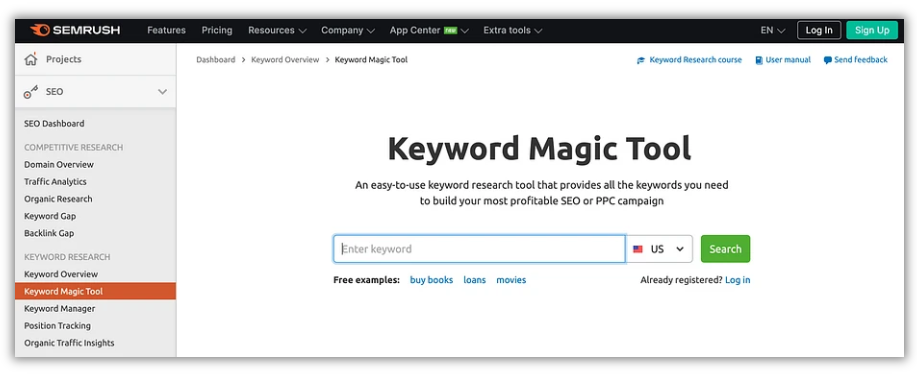
Creating a title can be a tricky balancing act. Often, a search-friendly, informative name isn’t particularly innovative or clever. Trying to squeeze too much information into a title can also make it wordy and difficult to remember. If you’re struggling to create a short, catchy name that clearly communicates your podcast’s contents, you may want to consider adding a tagline. This feature gives you more words to work with without lengthening your title.
4. Create a content calendar
There’s no clear answer regarding how frequently you should post new podcast episodes. Essentially, you should aim to publish as often as possible as often as possible without impacting the quality of your content. It’s also important to be realistic. The best content calendar is one you can stick to. This document is a detailed plan of when you plan to publish new episodes and their topics. You might even specify publication times and choose your podcast guests in advance.
If you begin to drift off schedule or post on inconsistent days or at different times, your audience won’t know when to expect your next installment. Eventually, it may take new episodes longer to achieve the smae number of views. Even worse, listeners may give up on your content, Your typicla podcast listener appreciates routine and consistency. If you can’t provide this consistency, your audience might look for a more reliable podcast instead. How to Start a Podcast: Easy and Proper Guides?
Even worse, listeners may give up on your content. Your typical podcast listener appreciates routine and consistency. If you can’t provide this consistency, your audirnce might look for a more reliable podcast instead. Ideally, you want to become part of your audience’s routines. For example, listeners may enjoy your latest episode as part of their Sunday commutes or while cleaning their homes over the weeked. If you fail to release an episode at the expected time, your audience may find an alternative way to fill this gap in their routines.
You might consider downloading a free content calendar template from a marketing platform such as CoSchedule. This document enables you to plan your shows by week, month, and even your. Therefore, you can more easily hold yourself accountable to your publishing schedule.
5. Choose a podcast hosting provider
Even if you plan to post your content to services such as Apple Podcasts and Podcasts on Spotify, these platforms don’t actually store your episodes:

If you have an existing WordPress website host, it’s unlikely that the company will have the tools required to compress audio and distribute it to podcast networks. Instead, you’ll need a dedicated podcast host like Acast. This provider will store your podcasts. You can then post these shows to third-party platforms or even feature them on your website.
6. Record your first episode
Once you’ve planned your show, it’s time to record your first episode. While a high-end microphone and a soundproof room will improve the quality of your audio, it is possible to record a podcast using your computer’s built-in microphone.
While we’d always recommend investing in the best setup, there are some ways to create professional-sounding audio without investing in top-of-the-range equipment. Here, quality audio recording and editing software are essential tools when you start a podcast for free.
Audacity is a free audio editing application. You can use this software to record live audio through a microphone or mixer. The platform can also digitize recordings from other media:
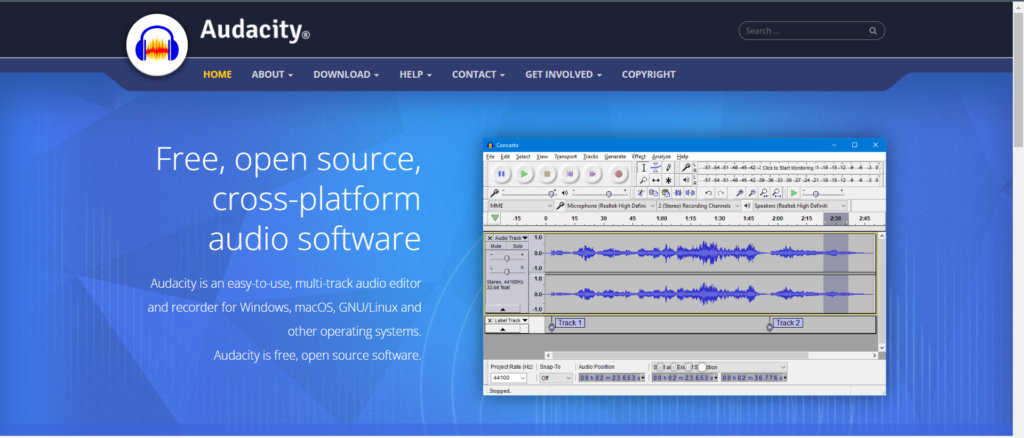
This open-source application supports 16-bit, 24-bit, and 32-bit recordings. It also converts sample rates and formats using-quality resampling and dithering. Talking into a microphone may feel unnatural if this is your first podcast. Instead of focusing on the microphone, try to imagine that you’re having a conversation with a single person. This technique can help ensure that your content sounds more natural and engaging. You may even want to imagine that you’re chatting with your listener persona.
Finally, I recommend practicing at least part of your podcast before you start recording. Writing notes in advance can also prevent awkward silences or stumbling over your words. However, this process should get easier over time.
7. Publish and submit your episodes to directories
After recording your first episode and uploading it to your hosting provider, you should consider submitting it to directories. These are third-party platforms where listeners can discover, subscribe to, and download podcasts:
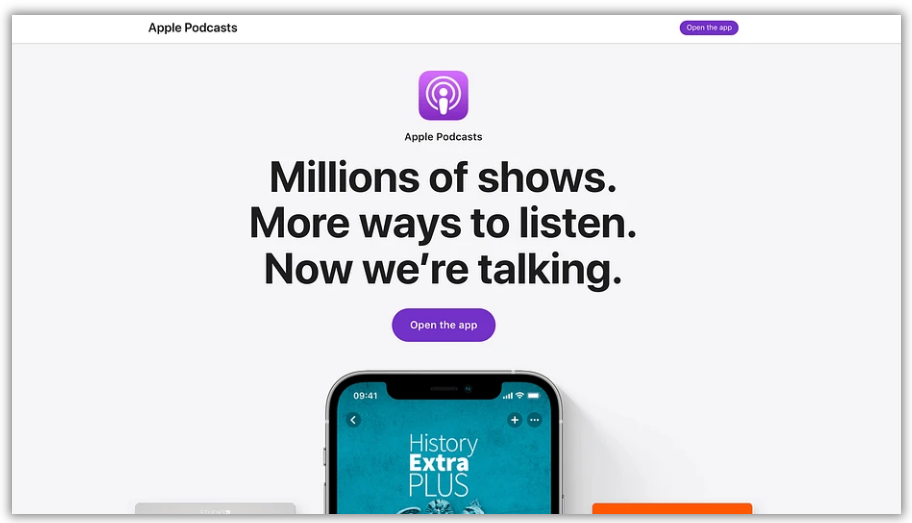
With their pre-existing audiences, directories are great platforms to get your content in front of as many people as possible. In fact, experts forecast that 28.2 million people listened to Podcasts on Spotify every single month in 2021. In addition, 28 million people listened via Apple Podcasts. Simply uploading your content to one of these platforms could increase your potential audience by millions.
Since these platforms specialize in hosting podcasts, they make their submission processes quick and easy. This means that third-party directories can deliver huge rewards for minimal effort. There are plenty of directories to choose from. We recommend starting with Apple Podcasts, Spotify, Google Podcasts, and the Stitcher platform.
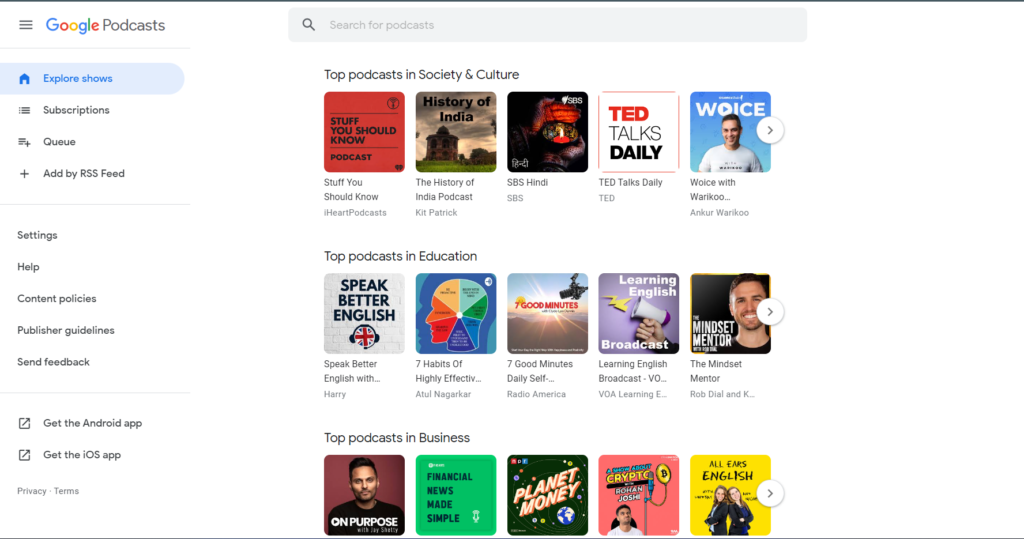
8. Promote your show
Once your podcast is out in the world, it’s time to promote it. Social media is a great place to begin, but maintaining an active presence across multiple platforms can be time-consuming. If you want to start a podcast for free, you can’t take advantage of premium social media scheduling tools.
With this in mind, it’s wise to prioritize the platforms where your target audience spends the majority of their time. For example, almost 80% of LinkedIn users are aged 24 or over.
By contrast, 41% of TikTok users are aged between 16 and 24.
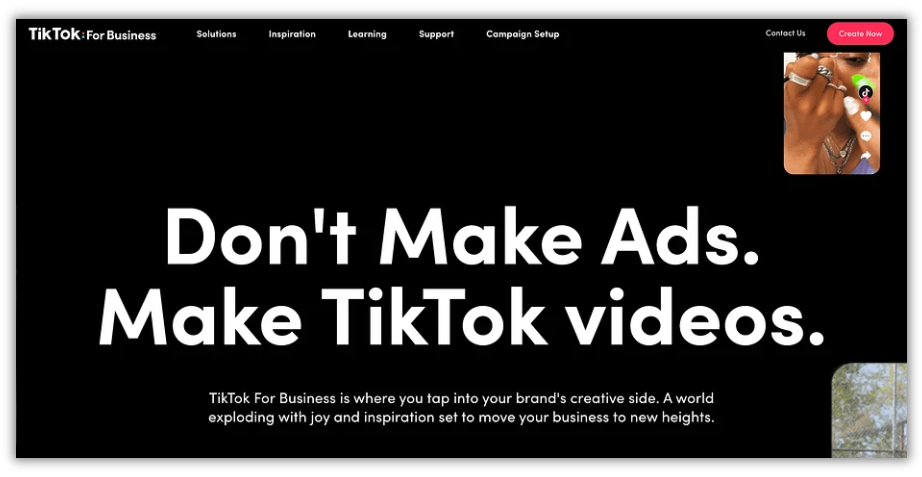
If you choose to promote your podcast on Instagram, Twitter, or even LinkdIn, you can often reach a wider audience by using hashtags. We recommend finding a few general hashtags that describe your podcast’s content. It’s also a good idea to create a branded hashtag for your podcast. This tool can help you start to build a community.
Furthermore, most of the popular directories accept reviews. This powerful social proof can encourage more people to check out your work. It’s also free content that you can include in your promotional campaigns or even feature on your podcast’s website. It can seem like everyone has their own podcast. While this means lots of competition, it also means more collaboration opportunities. Some podcasts actively look for guests via platforms such as Twitter. How to Start a Podcast: Easy and Proper Guides?
Appearing on someone else’s podcast is an excellent opportunity to promote your own work. Some shows may even offer advertising spots in return for your contributions. Other podcasts might be looking for people to appear on their panels or fill in as subject experts in their interviews. Even if a show isn’t explicitly advertising for guests, many are open to the idea. If you believe you have something valuable to contribute, it’s always worth reaching out.
- If you got this article helpful leave a comment below in the comment box. I will try to help you. And Thanks for reading the Article!

Authored By The Er. Pramod Adhikari!
The Blogger, Author & CEO’s The Infinity Company! B.Tech in CSE (Computer Science & Engineering) From Sambhram College, Bengaluru-560097, Working Worldwide as Software(Web/App) Developer!
